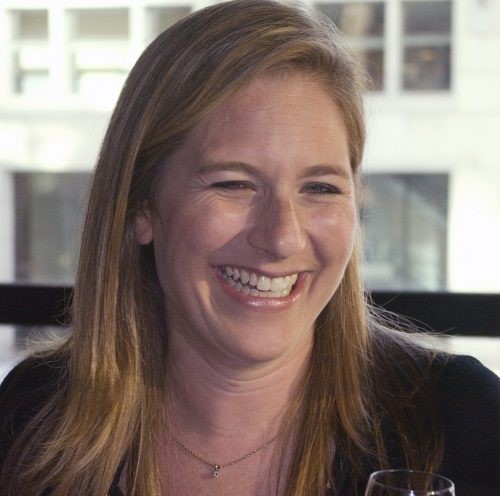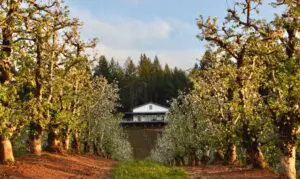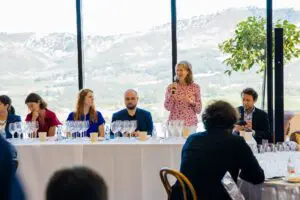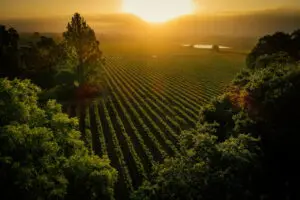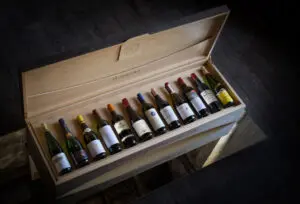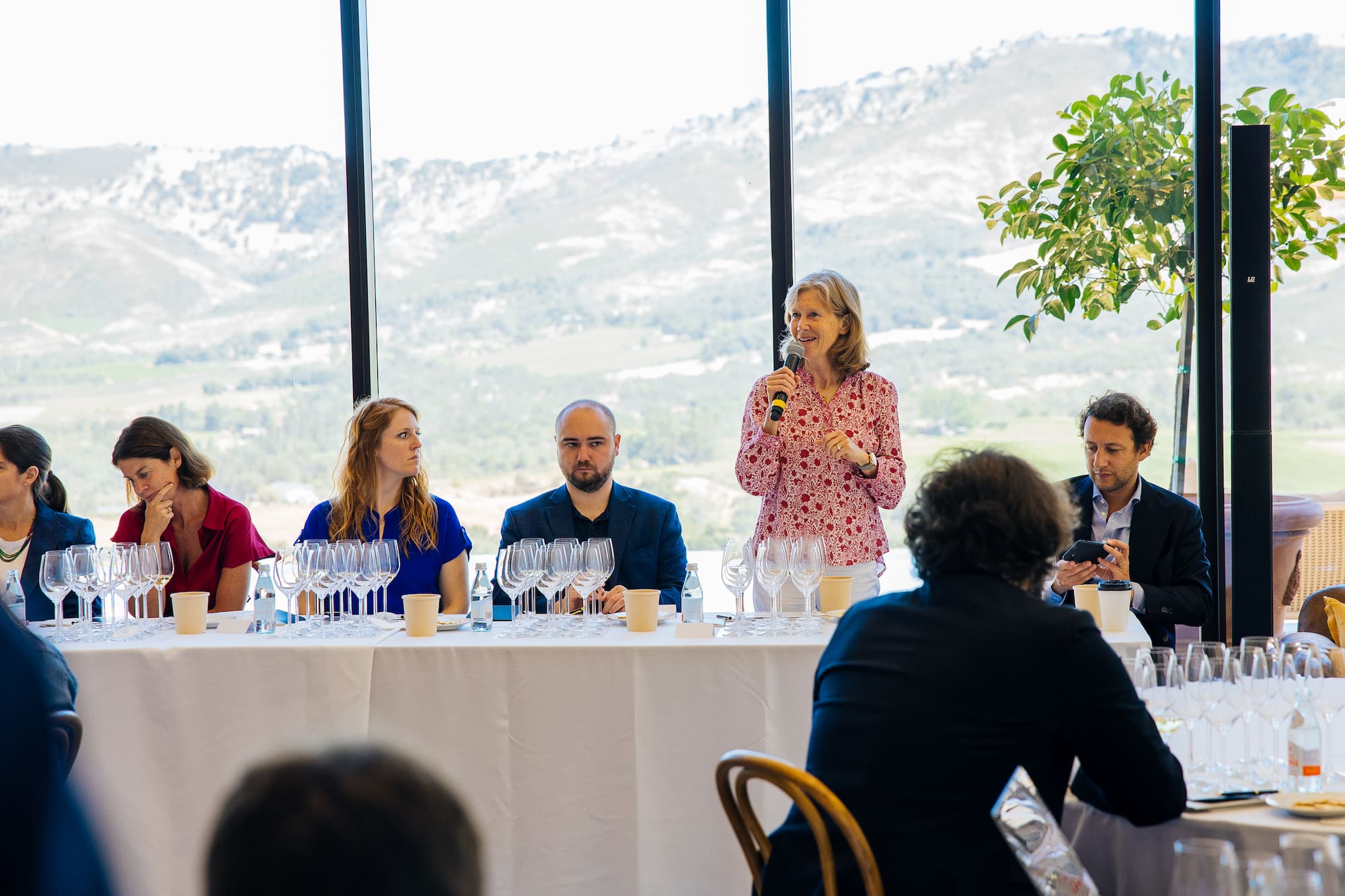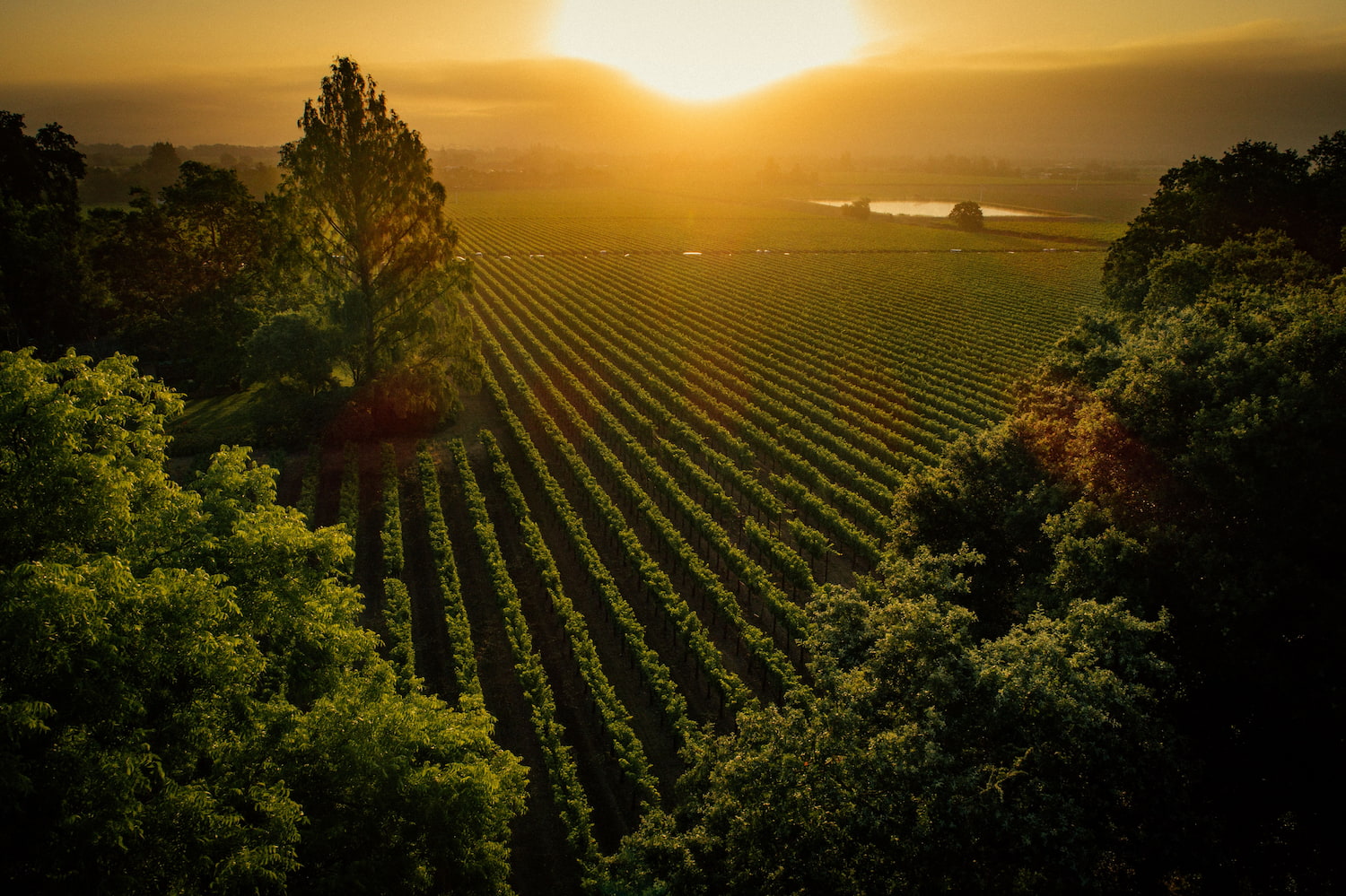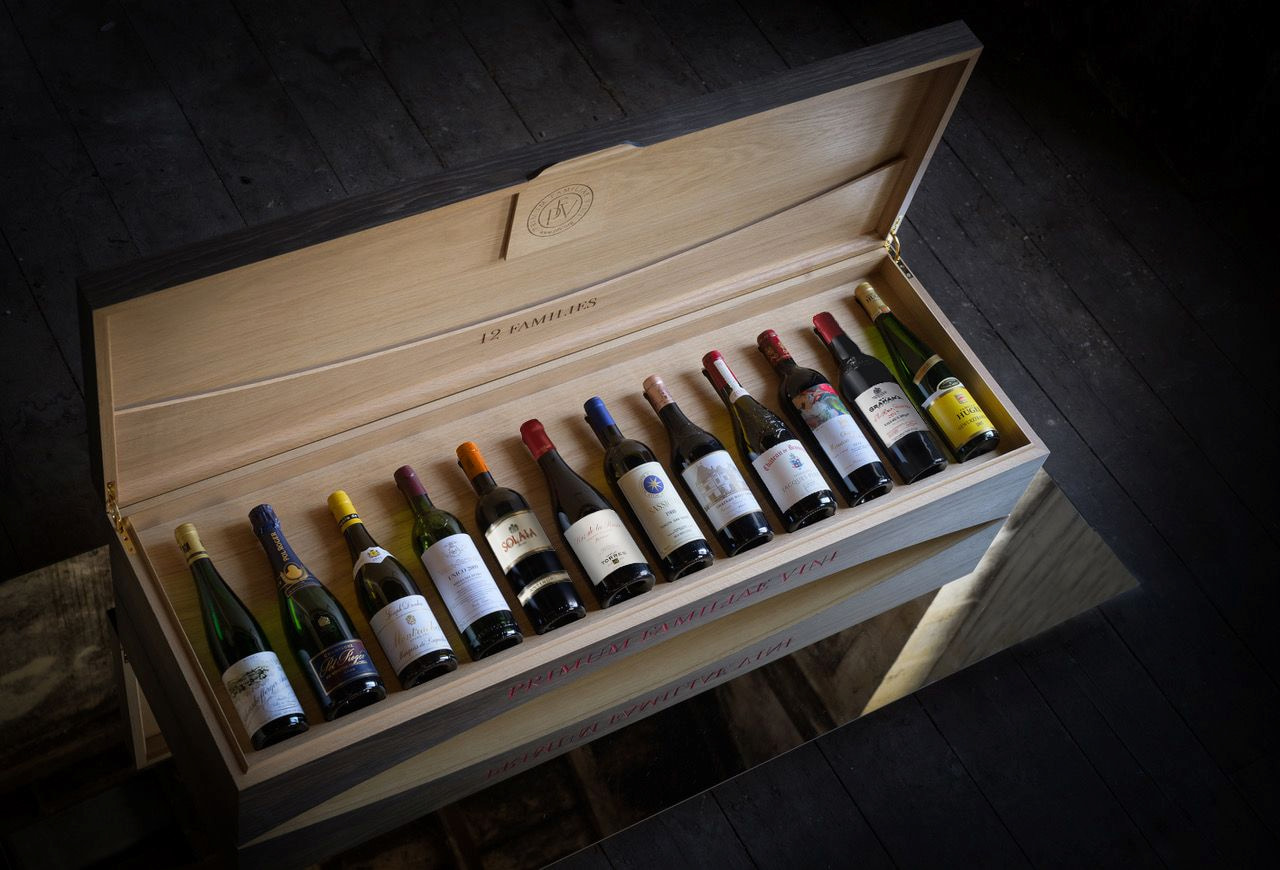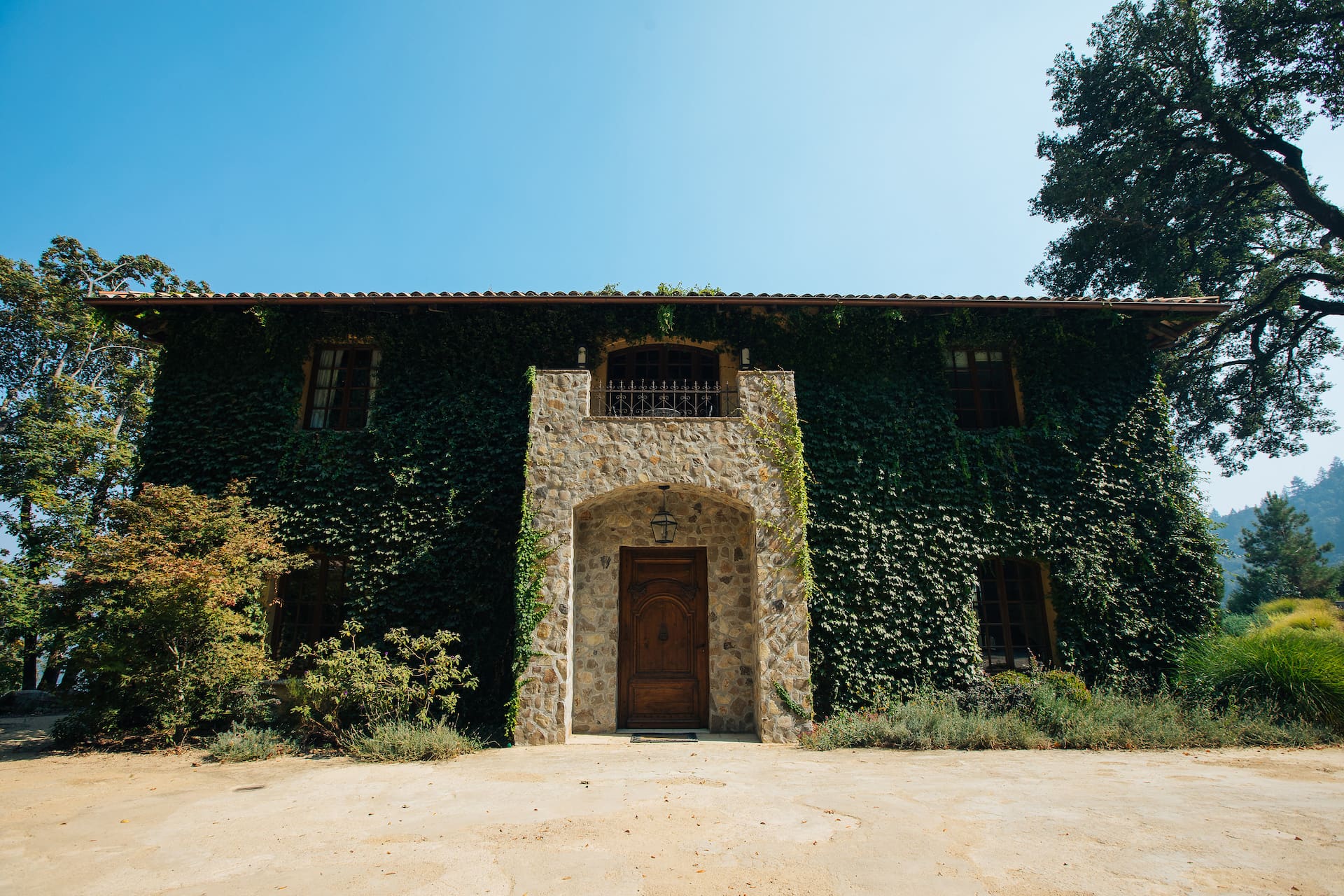We talk about different grape varieties but when you listen to a devout Pinot Noir drinker, they will talk about clones. We are not talking about an attack of the clones. Grape clones are not genetically modified grapes that are created in Petri dishes and manipulated. Pinot Noir is an ancient grape that has been planted all over the world. And, it has mutated over time, based on where it is planted. Today there are approximately 1,000 clones of Pinot Noir.
Around the world, many grape varieties are combined to create a blend. The idea behind a blend is that the sum is greater than the parts. I recently had an Italian red wine that was a blend of three grapes: Montepulciano, Sangiovese, and Merlot. The winemaker explained that the Montepulciano is the muscle in the wine, the Sangiovese provides the acidity that gives the wine a long shelf life, and Merlot gives the elegance.
But Pinot Noir is a grape that is not blended with other grapes. It is a single-varietal wine. It is the blending of different Pinot Noir clones that adds to the complexity of the wine.
What are grape clones?

A grape clone is a cutting taken from an existing grapevine that is grafted onto rootstock. The cutting is taken from vines with specific traits, such as disease resistance, temperature sensitivity, and fruit quality. These vine cuttings are propagated through several generations. Because the cuttings come directly from another vine, they can be traced to the initial vine and are genetically identical, sharing the same DNA.
“Suitcase clones” are cuttings that were taken (sometimes illegally) and brought from France via suitcases. Suitcase clones did not go through UC Davis. Budwood is brought into the country and grafted to the rootstock. The potential issue with suitcase clones is that they can bring viruses and bugs.
Pinot lovers love to talk about clones. I have been on many wine tours where I have heard someone ask, “is it the Dijon clone?”, “is it the Swan clone?”, “is it the Pommard clone?”. What does this really mean? Tasting three clonal Pinot Noirs from Bouchaine Vineyards, I began to understand.
About Bouchaine Vineyards
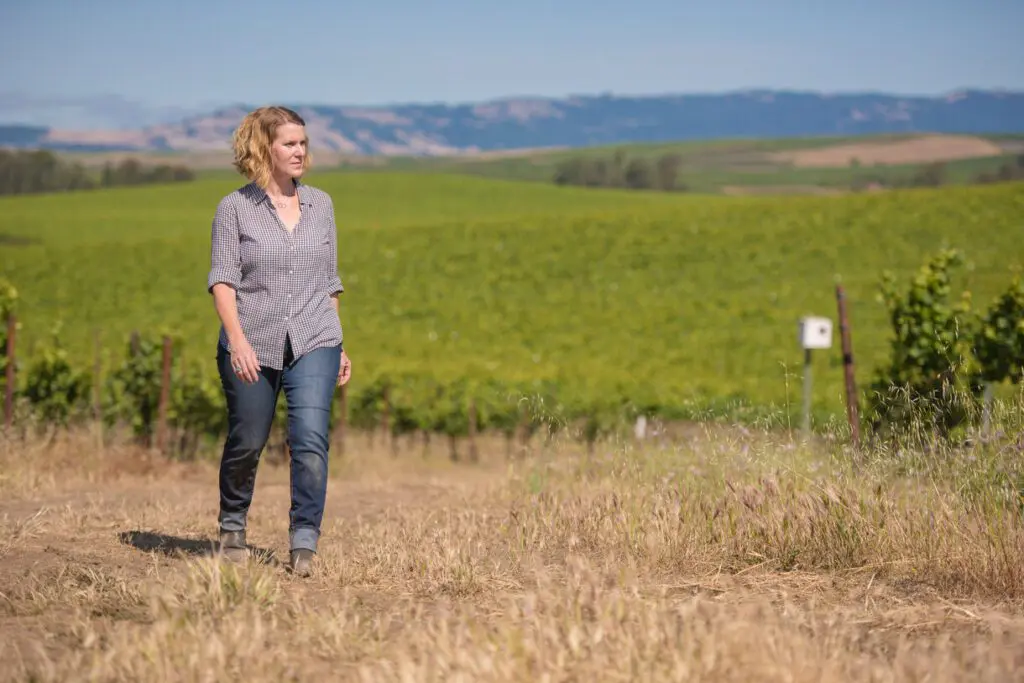
Bouchaine Vineyards is an estate-focused producer located in Carneros. First planted in the 1800s by Quincy Boonfly, the run-down property was purchased in 1981 by Gerret and Tatiana Copeland, who invested a lot into the property. Bouchaine Vineyards is a 104-acre property with 87 acres planted. Bouchaine was the first Fish Friendly Certified vineyard in Napa Valley and holds a Napa Green Certification. In 2015, Chris Kajani joined as winemaker and general manager. Her philosophy is to be in the vineyard all the time. Chris, along with her all-female crew, picks based on taste. They hand-harvest at night, ferment in open-top tanks, and play with French oak, using 10-20% new oak and some big casks.
Pinot Noir Clonal Tasting
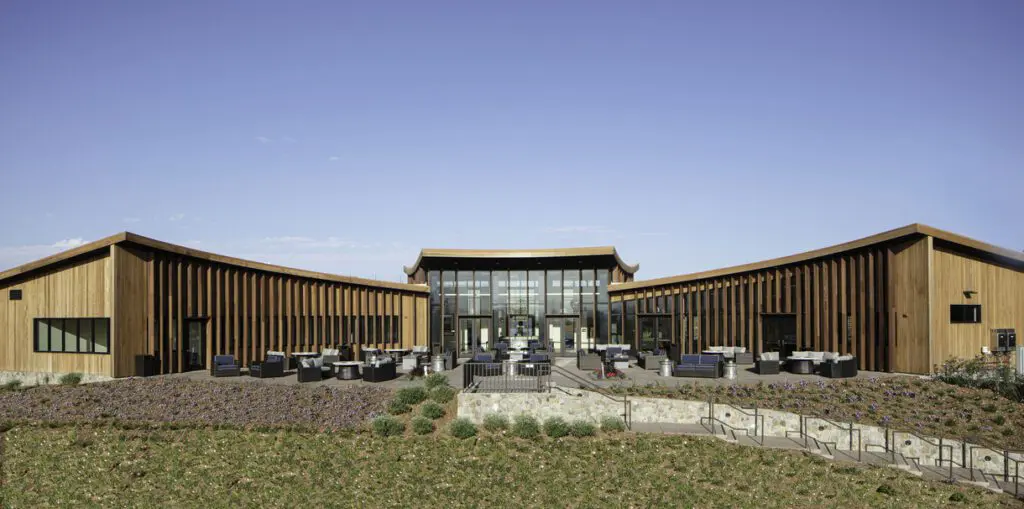
To understand the difference between Pinot Noir clones, Chris selected three clones from one vineyard from the same vintage for a tasting. This was an opportunity to see how three clones from the same vintage show on this particular site in Carneros.
The Vineyard
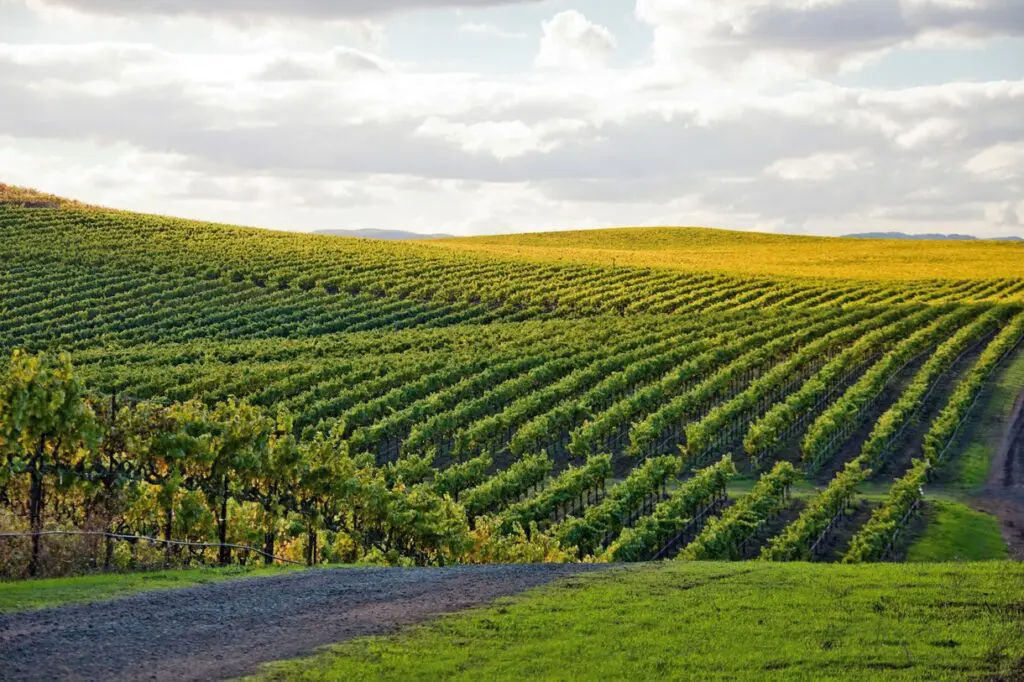
Of Bouchaine’s 87 planted acres, 31 are dedicated to Chardonnay, 46 to Pinot Noir, and the remaining 10 are devoted to Pinot Meunier, Pinot Gris, Gewurztraminer, Riesling, and Syrah.
Carneros is located in the southern part of Napa Valley but is significantly cooler than the rest of Napa. The San Pablo Bay brings the cooling influence sending wind across the hills during the day and fog at night. This maritime influence allows the grapes to slowly ripen, building good acidity.
The Vintage
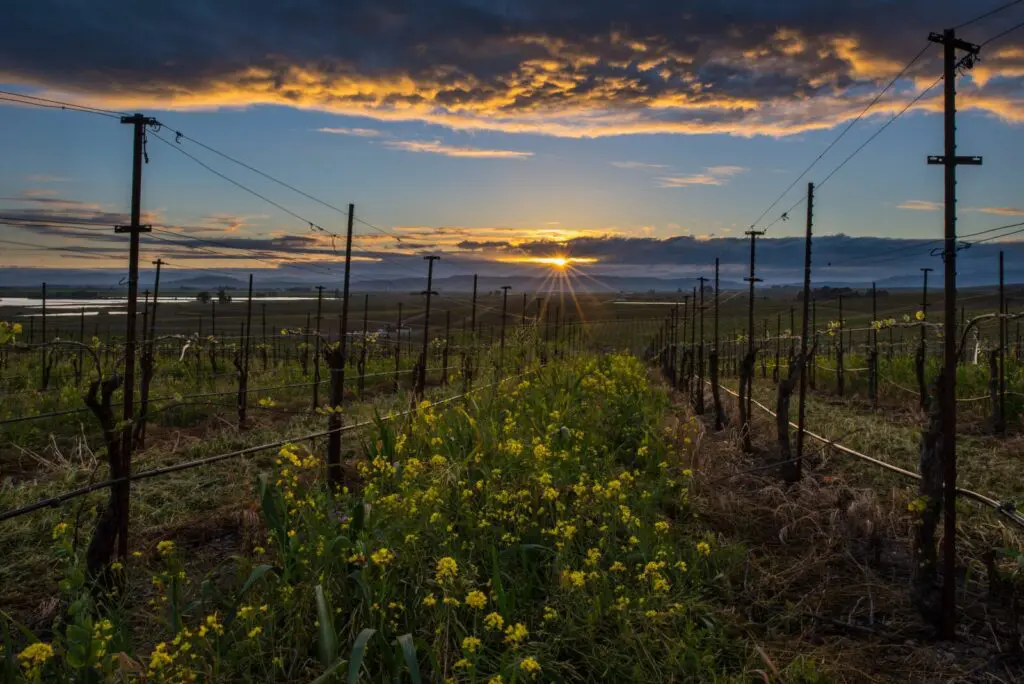
The vintage is 2019. According to Chris, “the 2019 growing season will be remembered as a “Goldilocks” vintage. Not too cold, not too hot . . . but just right.” There were late rains in May that caused some concern. But the rains disappeared, and sunshine returned for a long, consistent growing season throughout the summer. The grapes were able to ripen at an even pace.
The Pinot Noir Clones
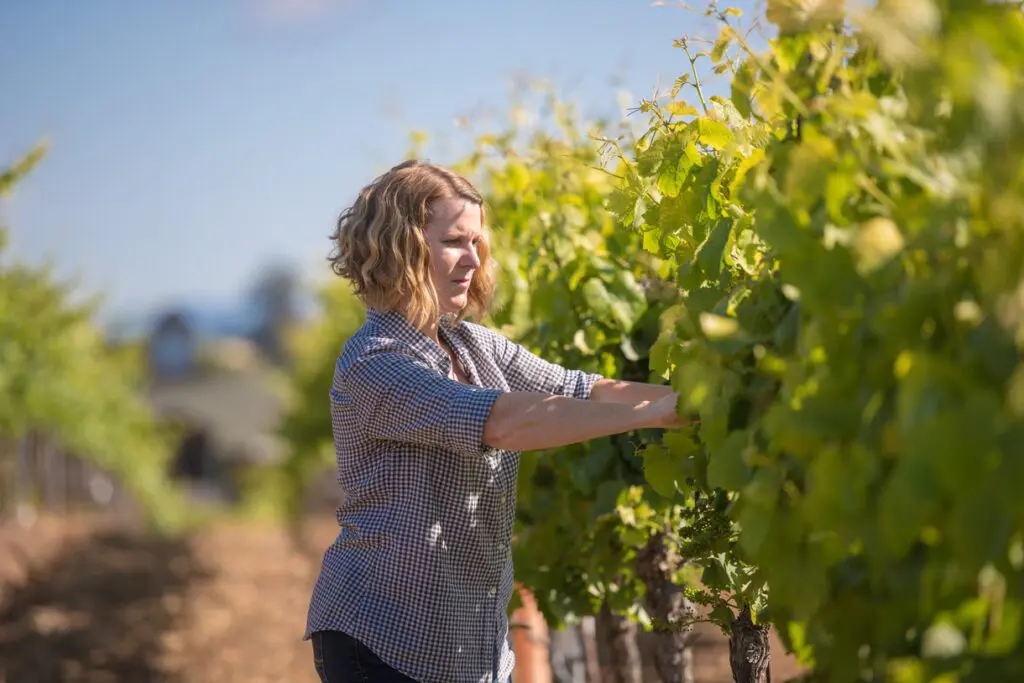
The 46 acres of Pinot Noir planted at Bouchaine Vineyards include the Swan clone, the Pommard clone, and the Dijon clone. These clones are planted close to each other. And while there are slight soil differences throughout the vineyard, the variation is the clonal difference. To taste three single-clone Pinot Noirs from within the same vineyard, we can taste the differences in how these clones show this site in Carneros.
It is important to note that from Carneros to the Russian River to the Anderson Valley and beyond, Pinot Noir clones will differ. As Chris explained, “the site will always trump the clone as clones reflect where they are planted.”
Swan Clone

The Swan clone is named after Joseph Swan who, in the 1970s, brought a suitcase clone from a monopole (single vineyard) in Burgundy to the Russian River. Swan worked with renowned winemaker André Tchelistcheff and planted this clone all over California and Oregon. The Swan clone produces bigger berries with thicker skins and is a slow ripener. A Pinot Noir clone that is beautiful on its own, Chris described the Swan clone as “very light in color, very perfumy, graceful, high-toned but with nice structure behind the wine, and tension on the palate.”
The Bouchaine Vineyard 2019 Swan Clone Pinot Noir, Carneros, Napa Valley ($65), which spent 10 months in 20% new oak, has aromas of strawberry, cherry, wildflowers, and a fresh green note of celery. While light in color, the wine has intensity and structure with a zippiness.
Pommard Clone

The Pommard clone originated from cuttings imported by Dr. Harold Olmo directly from Burgundy in the 1940s. The Pommard clone has thicker skins and produces a wine with a darker fruit profile and more tannin. The Pommard clone makes a Pinot Noir for Cabernet Sauvignon lovers.
The Bouchaine Vineyard 2019 Pommard Clone Pinot Noir, Carneros, Napa Valley ($65) spent 10 months in 25% new French oak. The wine has lots of plum, blueberry, and cherry notes, as well as mocha and chocolate notes. Tannins are balanced by the fruit flavors. The wine is very energetic.
Dijon Clone 667

There are many Dijon clones from Burgundy, France. The clones are numbered 111-115, as well as 665-668, 743, 777-780, 828, 871, and 943 but are referred to collectively as the “Dijon clones.” 111-115 were the first official French clones of Pinot Noir released in 1971 and were guaranteed to be virus-free as they came through the University of Dijon to the University of California. Clone 667 has slightly smaller berries and is known for aromatic and tannic finesse.
The Bouchaine Vineyards 2019 Dijon Clone Pinot Noir, Carneros, Napa Valley ($65) spent 10 months in 35% new French oak. With darker fruit and spicy floral aromas, this wine is the darkest of the three wines. On the palate, the wine has a long silky finish.
Bouchaine Vineyards Estate Pinot Noir

Most often, Pinot Noir bottlings are blends of different clones. Bouchaine’s 2019 Estate Pinot Noir is a blend of different clones from the estate vineyard. This is the wine that takes Chris and her team the longest to put together. Sourcing from 12-15 barrels, there are pieces of Swan, Pommard, and Dijon, as well as 30 other plots. The goal of this wine is to create a balance between the alcohol, tannins, and acidity.
The Bouchaine Vineyards 2019 Estate Pinot Noir, Carneros, Napa Valley ($35) is fresh with aromas and flavors of cherry, wild strawberry, rose petal, baking spices, cocoa, and cola. On the palate, the wine is juicy with vibrant acidity and smooth tannins. There are approximately 10 clones in the Estate Pinot Noir, but none stand out. Instead, the wine is layered and shows how clones work together.
Allison Levine is the owner of Please The Palate, a boutique agency specializing in marketing and event planning for the wine and spirits industry. With over 15 years of experience in communications, marketing, and event planning, Allison is passionate about the world around her and the diverse people in it. Allison is a freelance writer and contributes to numerous publications, as well as her blog at www.pleasethepalate.com. She is the host of the podcast WineSoundtrack USA where she interviews winemakers and winery owners who share their stories, insights, and some humorous anecdotes. She also co-hosts a wine video series on YouTube called Crush On This. Allison holds a master’s degree in International Communications with a focus on cross-cultural training from the American University School of International Service. She also holds a WSET Level 3 Certificate from the Wine & Spirits Education Trust (WSET) and is a member of the Circle of Wine Writers.


